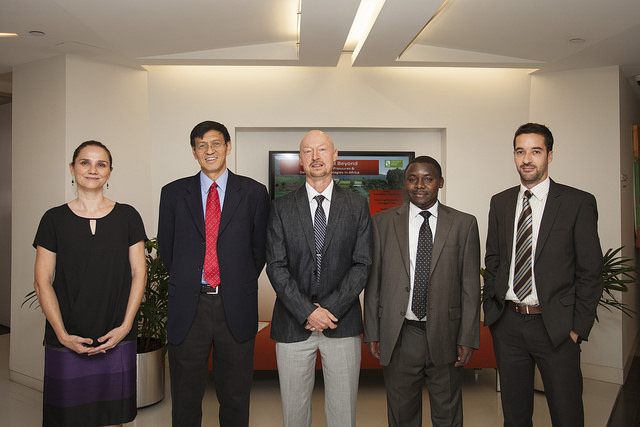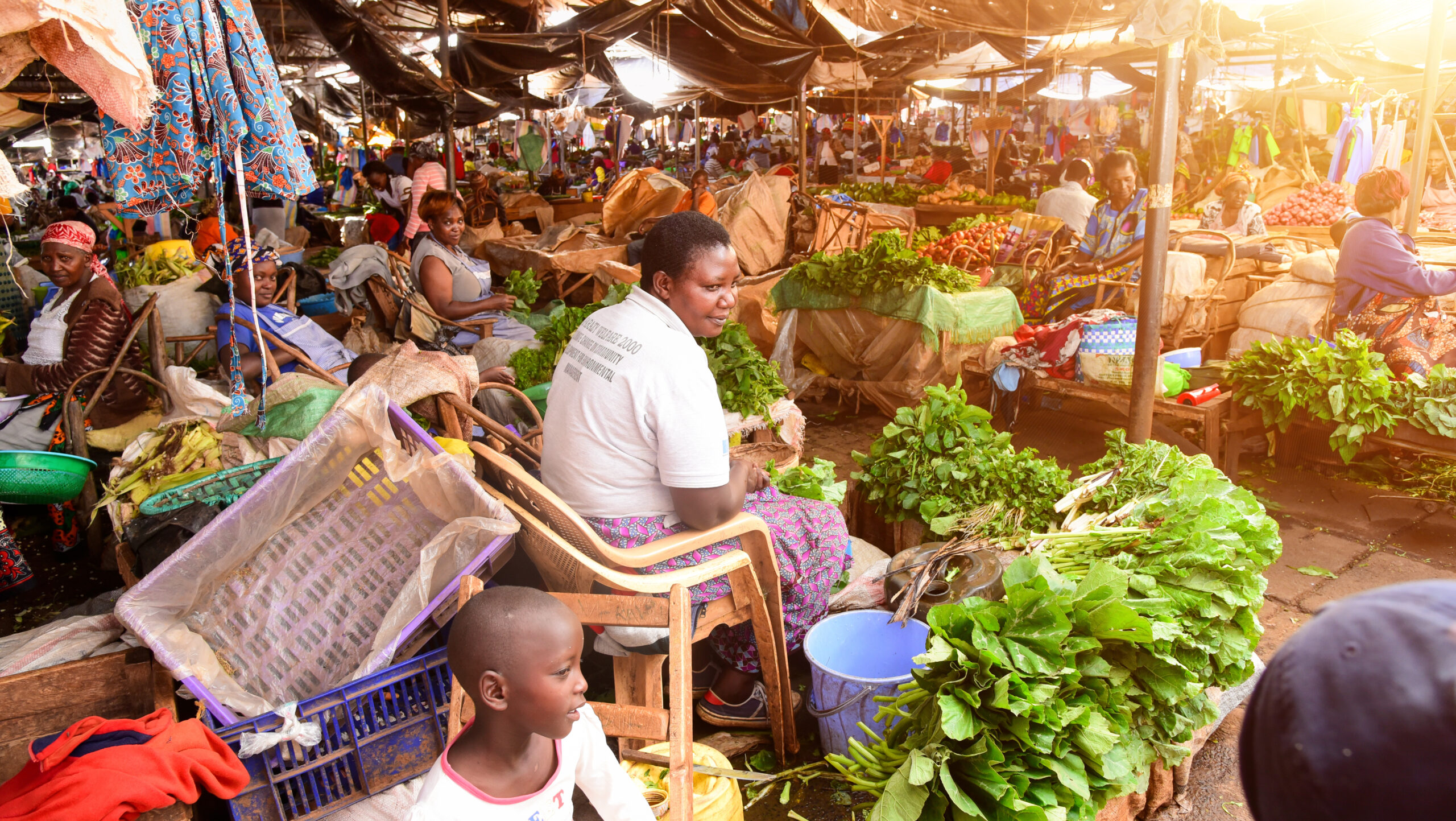Africa south of the Sahara is the only region in the world where rural populations are expected to continue to grow rapidly, with an estimated 48 percent increase in rural population density in the next 35 years. At the same time, smallholder farm sizes are shrinking and rural incomes are declining, posing significant development challenges in the region.
A recent IFPRI policy seminar brought together a panel of researchers who contributed to a special issue of the journal Food Policy that examined how rising pressure to produce more food on less land affects other development outcomes—such as crop yields and farmer incomes as well as employment opportunities for rural youth. The panel, which included Derek Headey from IFPRI and Thomas Jayne and Milu Muyanga from Michigan State University, underscored the need for a better understanding of these under-acknowledged trends.
Headey said there is a common misconception that much of the African continent is comprised of large tracts of unutilized arable land. In reality, he said, the land that is available for agricultural expansion is highly clustered in just a few countries. There are “two Africas,” he observed: a land-constrained Africa, and a land-abundant one.
The panelists suggested that the dilemma of too many people and not enough food leaves African farmers with four choices: expand their land for farming, intensify their farming, have fewer children, or move away from the farm (or the country).
Headey and his colleagues examined each of these potential responses, looking for evidence of where they were being implemented; how they could be supported by policy; and whether they have had a positive impact on agricultural productivity, poverty reduction, and other key food and nutrition indicators. They found that:
- The potential for agricultural expansion throughout much of Africa is more limited than expected. Most farmers on the continent do not have easy access to land for expansion. An estimated 90 percent of unutilized arable lands are located in nine countries, with the Democratic Republic of the Congo and Angola accounting for more than half of this area.
- So far, agricultural intensification has not been successful in improving productivity and farmer incomes, as benefits in many African countries lag far behind others facing similar land constraint issues in South Asia. Much of the intensification taking place throughout Africa is done without increasing fertilizer application rates or irrigation. According to Muyanga, in Kenya, for example, increasing rural population density has led to decreasing crop yields and farm incomes.
- There is a large unmet need for contraception and family planning services. Many families in Africa, especially in land-constrained countries with high rural population densities such as Ethiopia and Rwanda, would like to have fewer children but do not have access to contraception.
- Young people are increasingly moving from densely populated rural areas to the cities, but they are not moving away and sending remittances home, nor are nonfarm rural job opportunities increasing. According to Jayne, half of the 350 million young Africans entering the workforce in the next two decades will depend on these nonfarm jobs.
Policies to improve infrastructure, encourage use of fertilizer and irrigation, and improve access to contraception will help. Most importantly, technological innovations, policies, and markets are needed to help small farmers produce more food on less land, and to promote the kind of broad-based agricultural growth that benefits everyone.







